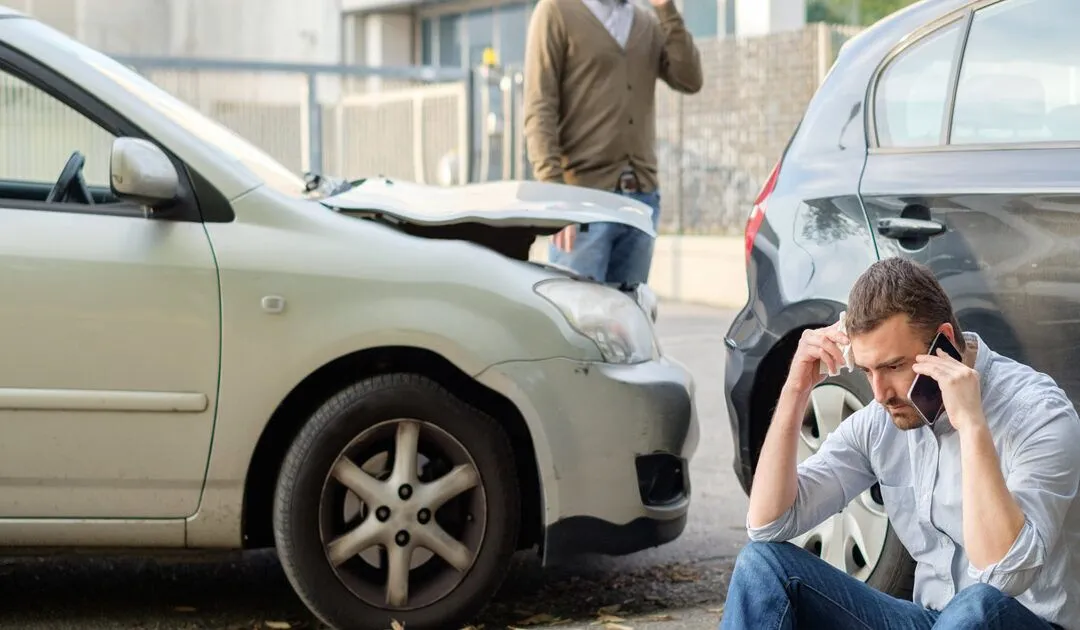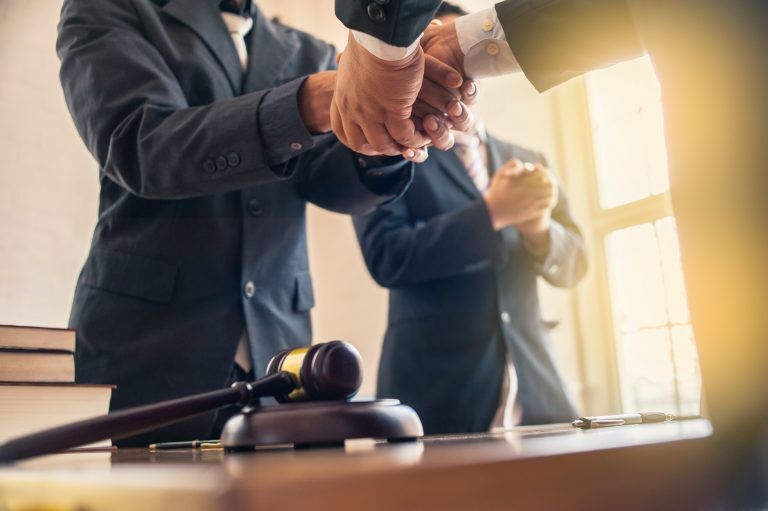- b. Driving Without Insurance or Valid Documentation
- d. Get the Other Driver’s Information, If Possible
- e. Avoid Admitting Fault or Apologizing
- b. Handling Insurance Companies
Car accidents are stressful experiences, and they can be even more challenging when the other driver is uncooperative. Whether they refuse to exchange insurance information, deny fault, or become combative at the scene, dealing with an uncooperative driver adds another layer of complexity to an already difficult situation. This is especially true in Georgia, where specific laws govern car accident claims, and ensuring that the process goes smoothly can feel daunting when the other party is difficult to deal with.
If you’ve been in a car accident and the other driver is uncooperative, it’s important to know how to protect your rights, gather the necessary evidence, and navigate the claims process efficiently. At 770GoodLaw, our experienced team of car accident lawyers is dedicated to helping Georgia residents and visitors resolve car accident claims, even when the other driver is uncooperative. This blog will guide you through the steps to take when faced with a non-compliant driver and provide insight into how a skilled attorney can help you get the compensation you deserve.
Why Do Drivers Become Uncooperative After an Accident?
Before diving into how to deal with uncooperative drivers, it’s important to understand why some drivers act this way after a car accident. There are a number of reasons why a driver might refuse to cooperate or engage properly after an accident. These may include:
a. Fear of Liability or Insurance Costs
Some drivers may be uncooperative because they fear being held responsible for the car accident. They might be worried about increased insurance premiums or even legal consequences, especially if they were at fault. In Georgia, which follows a fault-based system, the at-fault driver is generally responsible for covering the victim’s damages, which includes medical expenses, lost wages, and property damage. As a result, the driver may resist providing necessary details to avoid bearing the financial burden.
b. Driving Without Insurance or Valid Documentation
Another common reason for a driver’s refusal to cooperate is the possibility that they are driving without insurance, an expired license, or a registration issue. If a driver is violating the law, they may attempt to avoid giving their personal information to prevent further legal trouble.
c. Personal Issues or Aggression
In some cases, the driver may be emotionally charged, upset, or even combative due to the stress of the car accident. Sometimes, a driver’s uncooperative behavior may stem from their emotions rather than any malicious intent. Unfortunately, this can lead to a situation where the driver refuses to exchange insurance information or cooperate with authorities.
d. Mistaking Fault
Occasionally, a driver may be uncooperative because they believe they aren’t at fault for the accident. If they mistakenly believe they are in the right, they may become defensive and refuse to acknowledge their role in the crash. This can create tension and lead to an unwillingness to exchange information or speak with insurance companies.
What to Do When Dealing with an Uncooperative Driver
When faced with an uncooperative driver after a car accident, it’s critical to remain calm and focused. Acting out of frustration or anger will only escalate the situation. Here’s what you should do in Georgia to protect your interests and set the foundation for a successful claim.
a. Stay Calm and Don’t Engage in Arguments
While it may be incredibly frustrating to deal with a driver who refuses to cooperate, it’s essential to keep your emotions in check. Avoid getting into a heated argument with the other driver. Arguing or becoming hostile can not only worsen the situation, but it may also negatively impact your ability to gather evidence or work with law enforcement. Instead, take a deep breath, remain as calm as possible, and focus on gathering information.
b. Call the Police Immediately
In Georgia, if you are involved in a car accident, it’s essential to contact the police, particularly if the other driver is uncooperative. Calling the police ensures that there is an official record of the incident, which can be vital when filing insurance claims or pursuing legal action. If the other driver refuses to provide their information or becomes combative, law enforcement can step in to help resolve the situation.
When the police arrive, provide them with accurate and honest details of the accident, including the behavior of the other driver. If the driver refuses to exchange information, tell the police officer about it. They will likely take a report, which will be crucial if you need to pursue legal action or a claim.
c. Document Everything
When you’re dealing with an uncooperative driver, thorough documentation is essential. Start by gathering as much information as possible at the scene, even if the other driver is unwilling to cooperate. Use your phone or a camera to take clear pictures of the following:
- Damage to both vehicles: Take photos of any damage to both your car and the other vehicle involved in the accident.
- License plate number: Get a clear photo of the other driver’s license plate, even if they refuse to share their information.
- The surrounding area: Take pictures of the location, road conditions, and traffic signs, if relevant.
- Injuries: Document any injuries that you or your passengers may have sustained in the accident.
If there are any witnesses, ask for their contact information. Witnesses can be incredibly valuable when it comes to establishing fault and proving the details of the accident.
d. Get the Other Driver’s Information, If Possible
While an uncooperative driver may refuse to provide their insurance details or identification, try to gather as much information as possible. In Georgia, you are legally entitled to exchange the following details after an accident:
If the driver is unwilling to give you this information, take note of their physical appearance, the vehicle’s make and model, the color, and the license plate number. Even if the driver refuses to speak with you, this information can still be useful in proving your case later.
e. Avoid Admitting Fault or Apologizing
One of the most critical things to remember after an accident—whether the other driver is cooperative or not—is that you should never admit fault or apologize. Even if you believe the accident may have been partly your fault, statements like “I’m sorry” or “It was my fault” can be misconstrued and used against you later. It’s best to remain neutral and let the police, insurance adjusters, and your lawyer determine fault based on the evidence.
How a Car Accident Lawyer Can Help You When Dealing with an Uncooperative Driver
If you’re having trouble obtaining necessary information or the other driver is outright refusing to cooperate, consulting with an experienced car accident lawyer can be incredibly helpful. An attorney can assist you in many ways:
a. Investigating the Accident
If the other driver refuses to provide their information, your lawyer will investigate the incident further. They may use the police report, witness statements, and any available surveillance footage to help piece together what happened. If needed, they can also subpoena information or records that may help support your claim.
b. Handling Insurance Companies
If the other driver is uncooperative, dealing with insurance companies can become complicated. You may need to file a claim with your own insurance company or pursue a claim through your uninsured or underinsured motorist coverage, especially if the other driver refuses to cooperate or doesn’t have sufficient coverage. A car accident lawyer can handle communications with your insurance company, the other driver’s insurance, and any other relevant parties to ensure you’re fairly compensated.
c. Representing You in Court, If Necessary
If the situation escalates and the uncooperative driver refuses to provide information or cooperate with the insurance process, your lawyer can represent you in court. A skilled lawyer can help prove liability, gather additional evidence, and advocate on your behalf, making sure you’re able to secure the compensation you deserve.
d. Negotiating a Settlement
A car accident lawyer’s role doesn’t end at filing the claim. They can negotiate a fair settlement with the at-fault driver’s insurance company, ensuring you don’t settle for less than you’re entitled to. If negotiations aren’t successful, they are fully prepared to take your case to court to get the best outcome for you.
Dealing with Uncooperative Drivers in Georgia
Georgia follows a fault-based system for car accidents, meaning that the at-fault driver is responsible for compensating the victim for damages. If the other driver refuses to cooperate, it can complicate the process. However, Georgia law requires all drivers to maintain a minimum level of liability insurance, so you have legal recourse to pursue compensation.
Under Georgia’s “Uninsured Motorist” (UM) coverage, your own insurance policy may cover you if the other driver lacks sufficient insurance or refuses to cooperate. This highlights the importance of having robust insurance coverage in place, including UM coverage, to protect yourself in situations like these.
Protecting Your Rights After an Uncooperative Car Accident
Dealing with an uncooperative driver after a car accident in Georgia can be frustrating and stressful, but it’s important to stay calm and follow the right steps. Documenting the accident, involving law enforcement, and working with a qualified car accident lawyer can help protect your rights and ensure that you receive the compensation you deserve.
At 770GoodLaw, we specialize in helping accident victims navigate complex situations, even when dealing with uncooperative drivers. Our experienced team is ready to assist you every step of the way, from gathering evidence and negotiating with insurance companies to representing you in court.
If you or someone you know has been involved in a car accident in Georgia and is facing an uncooperative driver, contact us today for a free consultation. We’ll help you get the compensation you deserve, no matter how difficult the situation may seem.



